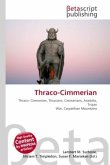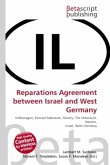Please note that the content of this book primarily consists of articles available from Wikipedia or other free sources online. Ruairi, Ruairidh, Rhuairidh, Ruaridh, Ruari or Ruairí is an Irish or Scottish Gaelic masculine given name. It is properly pronounced ''roo-ree'' but is often pronounced the same as Rory. It is based on Ruaidhri which means red king, after Ruaidrí Ua Conchobair the last High King of Ireland in the 12th century. A High King of Ireland (Irish: Ard-Rí na hÉireann) is a historical or legendary figure who claimed lordship over the whole of Ireland. Medieval and early modern Irish literature portrays an almost unbroken sequence of High Kings, ruling from Tara over a hierarchy of lesser kings, stretching back thousands of years. Modern historians believe this scheme is artificial, constructed in the 8th century from the various genealogical traditions of politically powerful groups, and intended to justify the current status of those groups by projecting it backinto the remote past. The concept of national kingship is first articulated in the 7th century, but only became a political reality in the Viking Age, and even then not a consistent one.
Bitte wählen Sie Ihr Anliegen aus.
Rechnungen
Retourenschein anfordern
Bestellstatus
Storno








